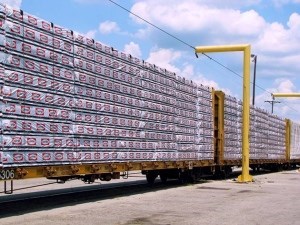Linda Coady, President & CEO of the BC Council of Forest Industries (COFI) made the following statement in response to ongoing mill closures and curtailments in BC:
“Escalating closures and curtailments of lumber, pulp and paper mills in BC mean the provincial government needs to move faster to stabilize timber supply. Additional transition measures are needed within the next 60 days to address current challenges in approval and permitting systems, and changing land use policies that are leading to dramatic declines in harvest levels.
Each time a mill closes in BC, there is a substantial direct impact on employees and their families, with further consequences for local communities as well as across supply chains. The loss of high paying jobs, local tax revenue and relocation to new employment opportunities have lasting effects in rural communities. It also creates uncertainty regarding the future of critical forest sector infrastructure and capacity in BC.
COFI recognizes that Premier David Eby has appointed Andrew Mercier as Minister of State for Sustainable Forestry Innovation to work with BC Forest Minister Bruce Ralston to stabilize fibre supply. We urge the province to accelerate the work being done to find solutions.
The forest industry has and continues to be one of the economic drivers in the BC economy – key to BC’s manufacturing productivity, government revenue and exports; which can be seen in COFI’s latest Economic Impact Study. Job numbers and harvest levels are highly correlated. The industry depends on timber supply (also known as fibre supply) and new investment to create jobs and produce the low-carbon products to meet growing demand for building materials and systems as well as biomaterials for energy and other renewable products.
With dropping harvest levels, mill closures and curtailments have continued and resulted in the loss of 10,000 jobs (direct, indirect and induced) in 2023. Access to economic fibre has fallen from 60 million cubic metres in 2018 to 35 million cubic metres of actual harvest in 2023. The actual harvest in 2023 was 42 per cent below the allowable annual cut last year.
The past few months have seen increased discussions across industry, First Nations, labour, contractors, local communities and the provincial government on what can be done to stop this trajectory and stabilize fibre supply in both the short and long term. Now is the time for additional steps to be taken to build investor confidence and ensure a long standing and foundational industry continues to benefit the province.”



